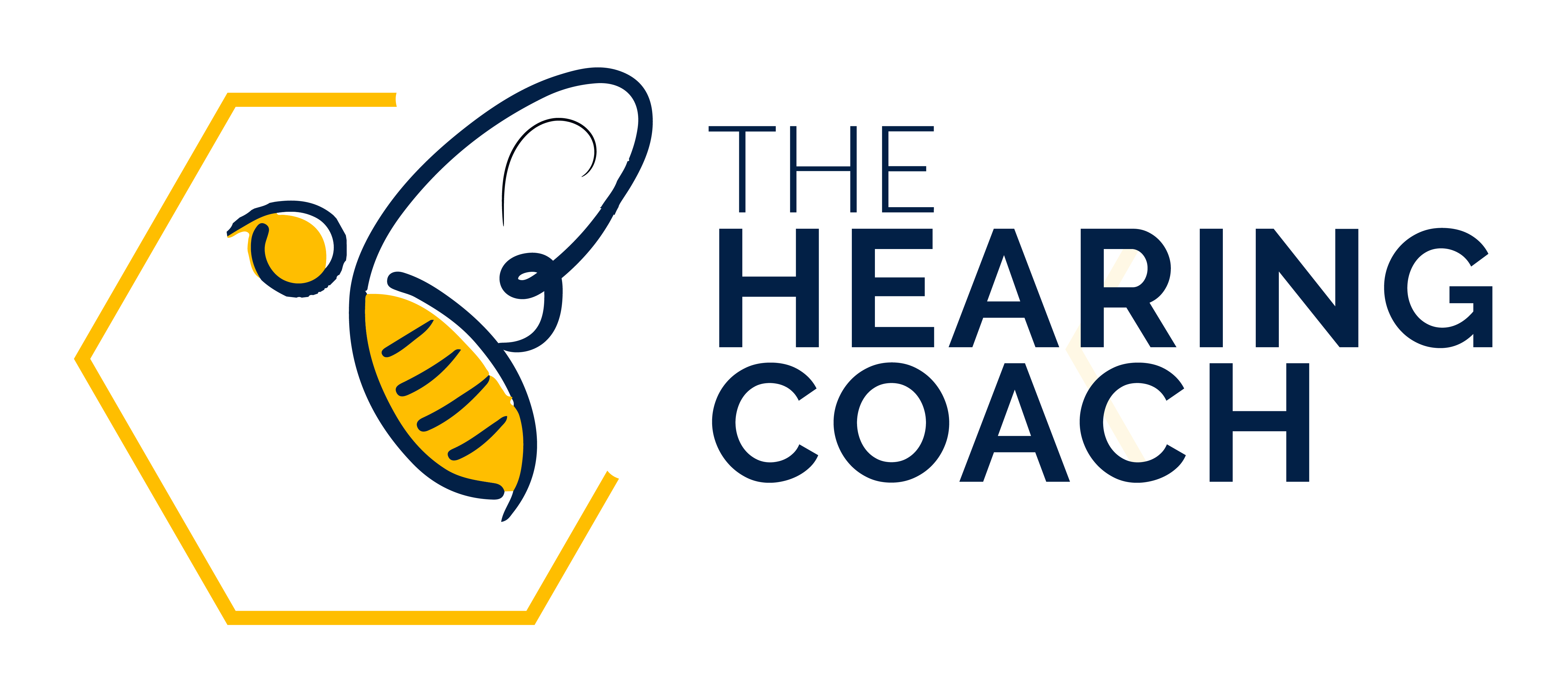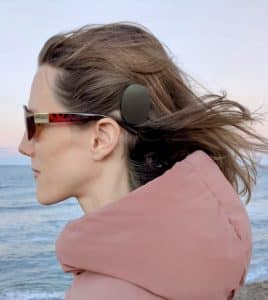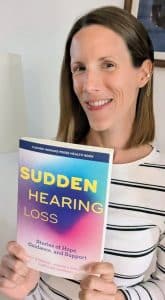I am so grateful to host Carly Sygrove as a guest on my blog. Take a look at her wonderful thoughts on hearing loss. I so wish Carly had been around when I went through sudden hearing loss in 2005. She would have been a tremendous resource! But I’m also glad she hasn’t had to live with it that long! There is SO much of value here for anyone with tinnitus whether they have hearing loss or not. Enjoy! Lisa x
My sudden hearing loss happened almost 9 years ago. I was a teacher at the time, living in Madrid, and hearing loss advocacy was far from something I had ever contemplated.
As a teacher, my life revolved around my students, ensuring they felt happy and comfortable in their learning environment. Beyond that, I managed behaviour, coordinated pastoral care, communicated with parents, attended meetings, and, of course, taught—the best part of the job.
It was the start of a new school year, and when my hearing suddenly vanished in my left ear, tinnitus and dizziness set in; I didn’t see the urgency of the situation. Why should I? I was used to experiencing various illnesses, working with young children, and spending much of my time feeling unwell yet pushing through, as so many teachers do. My body was urging me to stop and seek help, but I wasn’t paying attention.
I stumbled at the very first hurdle. By not seeking medical attention right away, I significantly reduced my chances of regaining my hearing. If I had known how crucial it was to treat sudden hearing loss promptly, I would have gone straight to the doctor. But deep down, the issue was that I didn’t advocate for myself. I didn’t even allow myself the permission to seek help. I didn’t get immediate treatment for my sudden hearing loss, nor did I seek prompt tinnitus relief or assistance with managing my balance issues. If a friend had shared that they were suddenly deaf in one ear, dealing with tinnitus and vertigo, I would have urged them to see a doctor right away. But for myself, I didn’t offer that same grace. I didn’t even advocate for myself at the most basic level.
That was nearly 9 years ago, and I have come a long way in terms of hearing health advocacy. I’ve had to.
Definition of Advocacy
So, what does it mean to be your own self-advocate?
The UK charity Hearing Together defines self-advocacy as the following:
“Self-advocacy is the ability to confidently communicate your needs, thoughts, feelings, and preferences. For children and adults with hearing loss, it allows you to speak up, make necessary changes to your environment, and be confident in your rights.”
What constitutes a successful self-advocate varies from person to person. For some, it might mean openly and proudly informing everyone they interact with about their hearing loss. For others, it could be as simple as explaining to loved ones how to communicate effectively.
Being Your Own Hearing Loss Advocate
Self-advocacy is essential when living with hearing loss, whether in healthcare, the workplace, or social situations.
Advocacy in Healthcare
In the UK, self-advocacy is often essential, whether with a GP, an audiologist, or an ENT specialist. In Spain, I’ve had my fair share of frustrating encounters with GP receptionists, who often act as gatekeepers to essential care.
Lisa Caldwell, the founder of this site, knows firsthand how critical it is to advocate for proper care. When she woke up one morning completely deaf in her right ear, she took the appropriate step by seeing her GP promptly. However, despite her persistence, she was repeatedly sent away and told it was just catarrh. “I was dismissed by my GP for many months, and because of that, my hearing loss could never be treated,” she explains.
Lisa’s experience underscores the importance of trusting your instincts and seeking answers, particularly when dealing with dismissive healthcare providers. Ideally, we shouldn’t have to fight for proper care, but sometimes we must. Advocating for yourself can be crucial in obtaining the right diagnosis and treatment.
Advocacy in Everyday Life
Advocating for yourself isn’t just important in healthcare; it’s a skill you may need in everyday life. In the workplace, you might need to request accommodations such as captions in meetings or a quieter workspace. When socializing, you may need to ask friends to choose a venue with good acoustics or remind them to face you when speaking. Booking tickets for events or travel can also require self-advocacy, whether it’s requesting accessible seating or ensuring that you’ll have access to assistive listening devices. Even simple tasks like ordering in a noisy café or communicating with customer service can be challenging, making it crucial to speak up for what you need. While it’s not always easy, advocating for yourself can lead to more inclusive and positive experiences.
Key Questions to Help You Become a Successful Self-Advocate
Some people may feel comfortable and confident advocating for themselves, while others might encounter more difficulty. Understanding the best way to communicate your needs and determining what approach works for you can take time.
With that in mind, it can be helpful to consider these questions as you begin learning how to advocate for yourself:
1. What Do You Want?
The first step is to understand what being an effective self-advocate means for you. Think about daily situations: walking down the street, travelling, at the doctor’s office, at work, or in the supermarket. Ask yourself:
- In what situations do you feel the need to speak up?
- What do you want your friends, family, or co-workers to understand about your communication needs?
The more clearly you define your needs, the easier it will be to develop a plan of action.
2. What Is Your Current Situation?
Reflect on how you currently handle communication challenges. Which responses would you like to change, and how?
- What are your strengths?
Consider your current strengths and resources when advocating for yourself. Are you calm when explaining your needs? Or perhaps you’re good at raising awareness? If you struggle with confidence, ask a friend for their perspective—others can often see strengths that we may overlook.
- What’s getting in your way?
Identify any barriers to self-advocacy. Identify barriers to self-advocacy. Are there insecurities or discomfort around talking about your hearing loss?
By understanding your strengths and challenges, you can begin to build a more practical, personalised approach.
3. What Are Your Options?
- What options are available to you?
Think about past experiences of self-advocacy—what was effective and what was not? Set realistic goals with a timeline and a method for tracking your progress.
- What kind of support do you need?
Who could help you? Maybe a friend to encourage you, or a journal to track your steps forward.
4. What’s Your First Step?
- On a scale from 1 to 10, how committed are you to becoming your own advocate?
- What’s the first small step you can take, and when will you take it?
This step should be simple and achievable, like asking a colleague to get your attention before speaking or requesting repetition when you miss something.
Support for Your Advocacy Journey
Becoming your own advocate can take time, persistence, and patience. Since hearing loss is often invisible, others may not always recognise your communication challenges. You may need to gently and repeatedly advocate for your needs. While this isn’t always easy, it can lead to more empowered relationships, better healthcare outcomes, improved workplace accommodations, and a stronger sense of control in your daily life. If you’d like more guidance on building your advocacy skills, here are some ways I can support you:
1:1 Hearing Loss Coaching
If you’re ready to strengthen your self-advocacy skills but aren’t sure where to begin, I offer personalised hearing loss coaching. Together, we’ll work on building your confidence, expressing your needs more clearly, and navigating everyday challenges with greater ease. Learn more at carleysygrove.com
My New Book: Sudden Hearing Loss
I’m also excited to share the release of my new book, Sudden Hearing Loss: Stories of Hope, Guidance and Support. Although it centres on sudden hearing loss, the book provides broader guidance for anyone learning to live with hearing loss. It’s packed with:
- Practical tools to support self-advocacy in healthcare, work, and daily life
- Emotional support for navigating the challenges of hearing loss
- First-hand stories that highlight resilience, self-advocacy, and empowerment
The book is now available in the US and in the UK on July 1st. You can find it on Amazon UK, Amazon US or at most online bookstores.
Final Thoughts
Taking charge of your hearing loss journey is a process, and every small step you take towards self-advocacy builds your confidence and control. Remember, you are not alone; support is available. Start today by speaking up for your needs, and watch how it transforms your relationships, your healthcare, and your life.
All About Carly:
Carly Sygrove is a hearing loss coach, advocate, and author with a background in education. After experiencing sudden hearing loss and developing tinnitus in 2016, she was diagnosed with Meniere’s disease and vestibular migraine. Recently, Carly received a cochlear implant for single-sided deafness. As a coach, she helps others live confidently with hearing loss. She shares her story on My Hearing Loss Story and founded the Sudden Hearing Loss Support website. Carly also manages an online support group and co-hosts the Happy Hearing Podcast, focusing on the psychological aspects of hearing loss.



